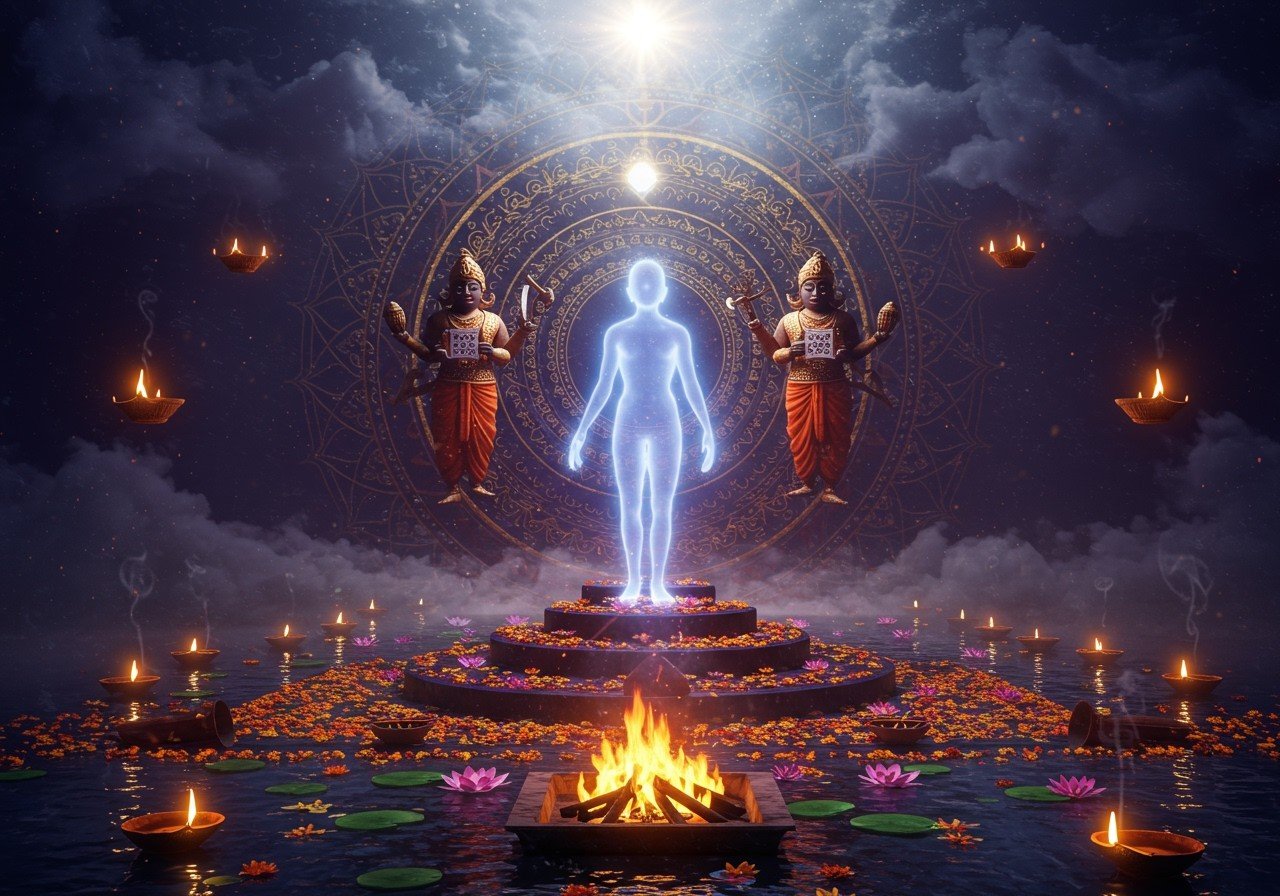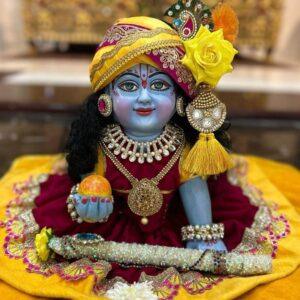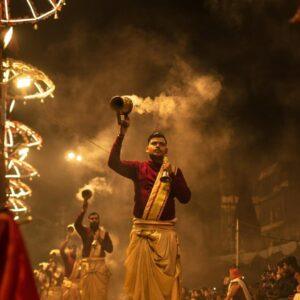
Hinduism, a faith rich in tradition, approaches death and the afterlife with unique rituals and beliefs. This article explores Hindu funeral customs, known as Antyesti, and delves into the core beliefs surrounding the afterlife, reincarnation, and the significance of honoring ancestors.
Hindu Death Rituals: A Journey to the Afterlife
Antyesti, the Hindu funeral rites, are a series of ceremonies designed to guide the soul’s transition to the afterlife. Cremation, a central practice, is believed to liberate the soul from the physical body. Prayers, mantras, and symbolic offerings are integral to these rituals. Family members, particularly the eldest son, play vital roles in performing these ceremonies, demonstrating the strong familial bonds within Hindu culture. Learn more about the significance and importance of Hindu rituals.
Following cremation, the ashes are typically immersed in a sacred river, often the Ganges, symbolizing the soul’s return to nature and purification. The mourning period, traditionally lasting 13 days, involves prayers, rituals, and reflection, offering solace to the bereaved family. Shraddha, a significant ritual, involves offering food to the departed soul, ensuring its peace and well-being in the afterlife. Specific items like incense, ghee, and sacred threads hold symbolic meaning in these ceremonies. Explore core Hindu beliefs and practices to deepen your understanding.
Reincarnation: The Cycle of Rebirth
Central to Hindu beliefs about the afterlife is the concept of reincarnation – the cycle of birth, death, and rebirth. Hindus believe the soul is eternal, transitioning from one life to the next based on karma (actions). The ultimate goal is moksha (liberation) from this cycle, achieving a state of freedom from earthly attachments and suffering. Sacred texts like the Bhagavad Gita and Upanishads offer profound insights into this concept. Discover the key scriptures of Hinduism to learn more about these philosophical foundations.
Honoring Ancestors: Pitru Paksha and Pind Daan
Pitru Paksha, a 16-day period in the Hindu lunar calendar, is dedicated to honoring ancestors. Pind Daan, a crucial ritual during this time, involves offering rice balls to ancestors, expressing gratitude and seeking their blessings. Hindus believe that honoring ancestors strengthens familial bonds and ensures their well-being in the afterlife. Explore the concepts of Dharma and Karma in Hinduism for a deeper understanding of ancestral reverence.
Poojn.in: Supporting Your Spiritual Journey
Poojn.in, India’s leading provider of spiritual and ritualistic products, offers a comprehensive selection to support your observances. We understand the deep significance of these rituals and provide authentic, high-quality items to facilitate your connection with tradition. Whether you need supplies for Pind Daan, cremation ceremonies, or mourning rituals, Poojn.in offers a convenient and reliable source for all your needs.
- Pind Daan Samagri Kits: Complete sets with all essential items for performing Pind Daan rituals, ensuring a smooth and respectful ceremony.
- Copper Vessels: Pure copper vessels for water offerings and other ritualistic purposes, adding authenticity to your ceremonies.
- Kafan Materials: Traditional white cloth materials for respectful preparation of the deceased.
- Incense and Ghee: Pure and fragrant incense sticks and ghee for creating a sacred atmosphere during ceremonies.
- Gangajal: Sacred water from the Ganges, essential for purification rituals and offerings.
Visit www.poojn.in today to explore our complete collection of products designed to support your spiritual journey and honor your traditions.


